Movies
Latest about Movies
-
-

The Substance Is One Of The Angriest Movies I've Ever Seen, And We Need More Like It
By Rich Knight Published
-
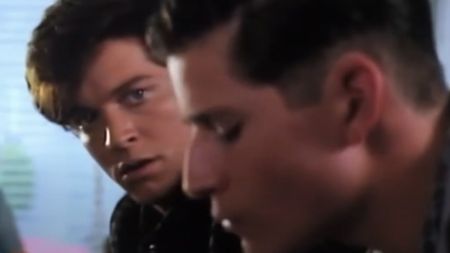
‘He Was Treating Me Very Badly’: Back To The Future’s Thomas F. Wilson Recalls OG Marty McFly Actor Going Method Before Being Replaced
By Eric Eisenberg Published
-

Jennifer Lawrence Calls Out Her Own 'Short Legs' And 'Really Long Torso' While Sharing Hilarious (Yet Solid) Fashion Advice
By Sarah El-Mahmoud Published
-
 Exclusives
ExclusivesOne Battle After Another Has A Thrilling Car Chase, And I Was Surprised to Learn It 'Went Through A Lot Of Different Versions'
By Adam Holmes Published
-

What’s It Like To Have Your Song Play During A Viral Sex Scene? The Housemaid's Jessie Murph Reacted
By Riley Utley Published
-
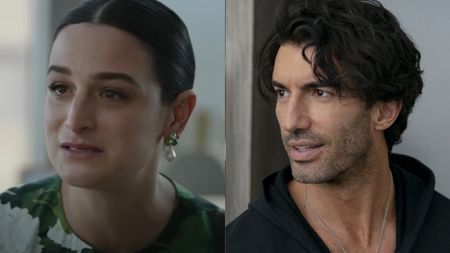
‘The Most Intense Narcissist’: Justin Baldoni Is Slammed By It Ends With Us’ Jenny Slate In Leaked Texts
By Erik Swann Published
-

Tessa Thompson Told A Wild Story About Going To Couples Therapy With Michael B. Jordan, And What She Learned
By Ryan LaBee Published
-
Explore Movies
Box Office
-
-
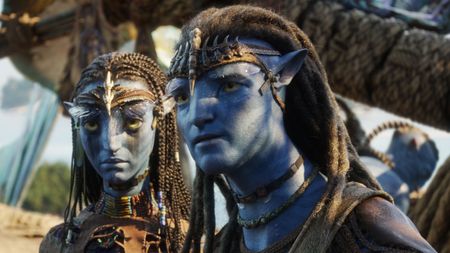
Will 28 Years Later: The Bone Temple Take Down Avatar: Fire And Ash At The Weekend Box Office? It's Going To Be A Photo Finish
By Eric Eisenberg Published
-

Primate And Greenland 2 Prove Light Competition For Avatar: Fire And Ash At The Weekend Box Office
By Eric Eisenberg Published
-

First Box Office Weekend Of 2026 Delivers Milestones For Avatar: Fire And Ash And The Housemaid
By Eric Eisenberg Published
-

It's Christmas On Pandora As Avatar: Fire And Ash Has A Massive Second Weekend At The Box Office
By Eric Eisenberg Published
-

Avatar: Fire And Ash Rules The Weekend Box Office (Duh), But Questions Linger About The Future
By Eric Eisenberg Published
-

Five Nights At Freddy's 2 Bombs Hard In Its Second Box Office Weekend As Zootopia 2 Returns To The Top Spot
By Eric Eisenberg Published
-
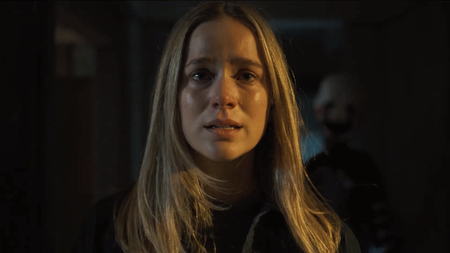
Five Nights At Freddy's 2 Survives Drubbing From Critics And Easily Wins The Weekend Box Office... But It's Not All Good News
By Eric Eisenberg Published
-

Zootopia 2 Surpasses $550 Million Globally, Running Wild At The Box Office Over Thanksgiving Weekend
By Heidi Venable Published
-
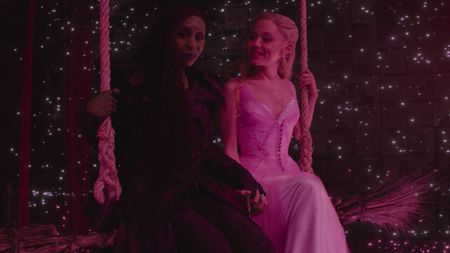
Rejoicify! Wicked: For Good Smashes Records At The Weekend Box Office, But It’s Bad News For The Running Man
By Heidi Venable Published
-
Features
-
-

Upcoming Book-To-Screen Adaptations: What To Read Before The Movie Or TV Show
By Sarah El-Mahmoud Last updated
-

I Just Found Out One Battle After Another's Chase Infiniti Has 2 Upcoming Roles, And I'm Really Excited About It
By Sarah El-Mahmoud Published
-

The Best Free Movies Online And Where To Watch Them
By Jason Wiese Last updated
-

Upcoming Disney Movies: Full List Of Titles And Release Dates
By Dirk Libbey Last updated
-

Upcoming Video Game Movies And Shows I Can’t Wait To See In 2026 And Beyond – Super Mario Galaxy, Mortal Kombat II, And More
By Philip Sledge Last updated
-
 New Issue
New IssueEnroll in Starfleet Academy with the latest issue of SFX
By Ian Berriman Published
-

We're Still A Year Away From Dune: Part Three, But We've Already Learned A Lot About The Film
By Hugh Scott Published
-

4 Women Of Color Who Were Snubbed By The 2026 Golden Globe Nominations
By Corey Chichizola Published
-

I'm Watching Heated Rivalry, And I'm So Glad There's Finally A Smutty TV Show For Queer Folks
By Corey Chichizola Published
-
More about Movies
-
-

Tessa Thompson Told A Wild Story About Going To Couples Therapy With Michael B. Jordan, And What She Learned
By Ryan LaBee Published
-

The More I Think About Hedorah As The Potential Villain In Godzilla Minus Zero, The More OK I Am With It
By Rich Knight Published
-

Chris Pratt On Getting Fat, And Why It’s Been Great For Him To Have Arnold Schwarzenegger As An In-Law
By Ryan LaBee Published
-